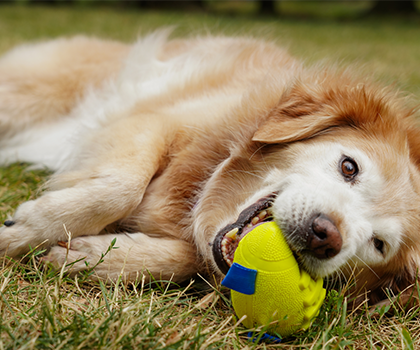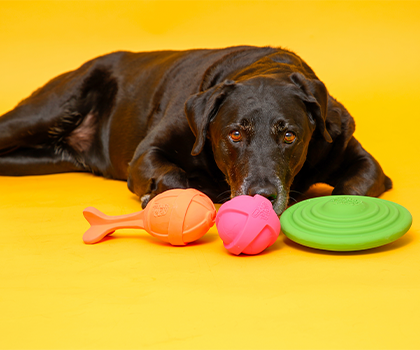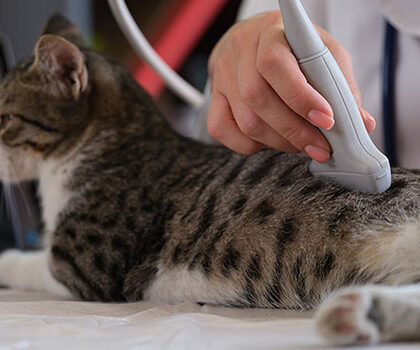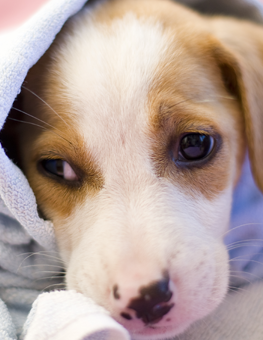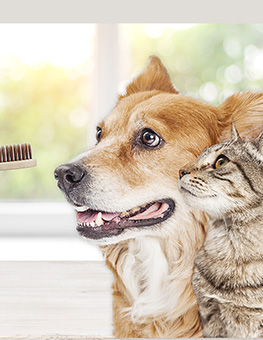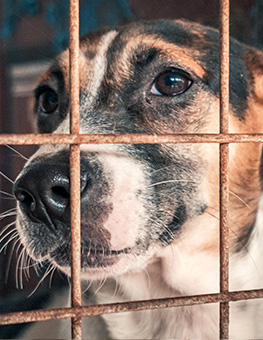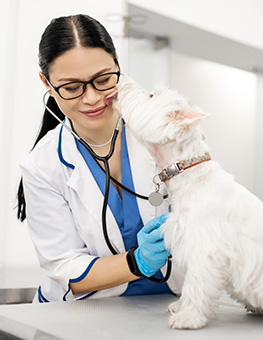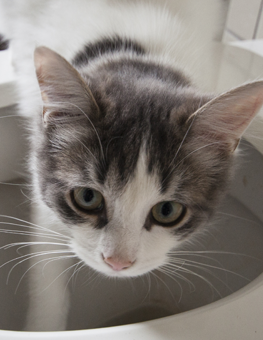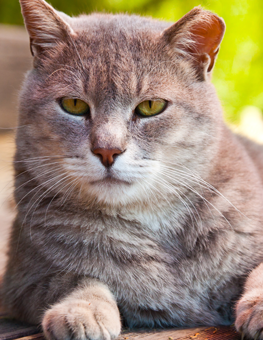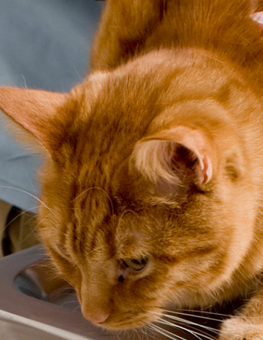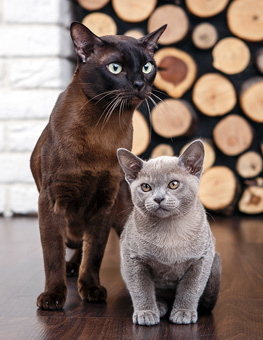Orphan Puppy Socialization
When should the puppy meet the rest of the family? What can you do to make him a happy, well-socialized dog?
Puppies have a lot in common with their human counterpart. Both puppies and babies need physical and mental stimulation, or they will suffer behavioral and developmental difficulties as they grow up. Dogs are very social animals. Like children they rely on interactions of others around them to mold their personality, shape their behavior and provide boundaries.
Between three and eight weeks your puppy learns what he needs to know from his mom and siblings about the rules of, well, being a dog. If you have a lone puppy, he’s going to be dependent on you for all his education and stimulation. Fortunately, a litter can offer each other some companionship and even some life lessons.
If Mom is still around, but unable to nurse her puppies, divide up the puppy care responsibilities. You handle the feeding and she can take on the cleanup and home schooling. As most of us know, no one can make you feel cherished, and no one can lay down the law like Mama. She teaches that gentle touch feel good, and biting hard is bad. Siblings supplement Mom’s lessons. Rowdy play is fun; rough play hurts.
If mom isn’t around to teach these lessons, the job falls on you. Your job is to teach your puppies that great things happen when people are around, and other pets and kids can be fun, too.
Puppies go through many important developmental stages.
- In the Neonatal Period which goes from birth to two weeks, the puppy first experiences touch, smell and taste, the only senses available to him. Through gentle handling, puppies use these senses to imprint to people. As the foster mother, you’re already giving him the handling he needs as you feed and bathe him. Limit handling by other people, especially kids.
- The Transition Period, from two to four weeks, teaches the puppy to use his new senses. After all, his eyes and ears are opening and he’s learning to use those clumsy feet. During this period the puppy should experience brief handling and cuddling, only a minute a day. This begins the bonding process with people.
- The Critical Socialization Period, which runs from three to 12 weeks, is the period when he learns to be a dog. He explores his surroundings. His mom, siblings and the people and other animals around him teach him social skills, play, bite inhibition, social structure and physical coordination. During this time the puppy needs to be exposed to novel situations, people and animals, but within a safe setting.
Between five and seven weeks the puppies begin to develop relationships with people. Orchestrate novel situations and pleasant encounters with strangers and gentle kids. Introduce him to both men and women, folks of different ethnicities and varying ages. Make sure everyone washes their hands before handling the little pooch. Perhaps he can play with a puppy-loving adult dog. Don’t forget to introduce him to dog-friendly kitties. Since he won’t have full immunity to contagious diseases, he should only come in contact with healthy dogs with current vaccinations. Always supervise encounters with animals and kids, both for your puppy’s safety and for the safety of his new friends. Don’t put this off.
Let him experience situations and noises he’ll encounter later in life: the radio, the vacuum, tennis shoes in the clothes dryer, toilets flushing, babies crying, pans hitting the ground, umbrellas and car rides. (You can buy CDs with thunder recordings or pick up a CD with Halloween sound effects.)
Around his eighth week, he’ll go through a fear phase. A puppy who hasn't been exposed to different situations, will be timid and fearful. But you don’t want to overwhelm him. Too much stimulation or placing a puppy in situations that scare the fur off of him could turn him into a fearful withdrawn adult. Don’t reward (hold him, pet and comfort him with baby talk) fearful behavior.
Puppies who don’t get the exposure to these things during this critical period are much more likely to be fearful or aggressive adults, than puppies who are introduced to many different people and animals.
Setting Some Boundaries
Mother dogs set boundaries and establish manners for their little ones. You don’t want to undermine her lessons. From the very beginning, the unacceptable should always be unacceptable.
One problem with puppies is that they are so adorable, they can get away with anything. When a five week old puppy nips you it’s cute; when a 50 pound dog does it, it’s dangerous. Fingers and toes are never okay to chew on. There needs to be a consequence for inappropriate behavior. Biting earns a sharp, “No!” and ends the game. You must be consistent. Biting cannot be okay with the kids and not acceptable with you. Try to get everyone on board. Distracting him with a toy or acceptable chew item is another way to stop inappropriate behavior.
Never physically punish or hit your puppy. He won’t make the connection between his action and the slap to the nose. He will learn that you’re a crazy person that comes unglued unexpectedly and is not to be trusted.



